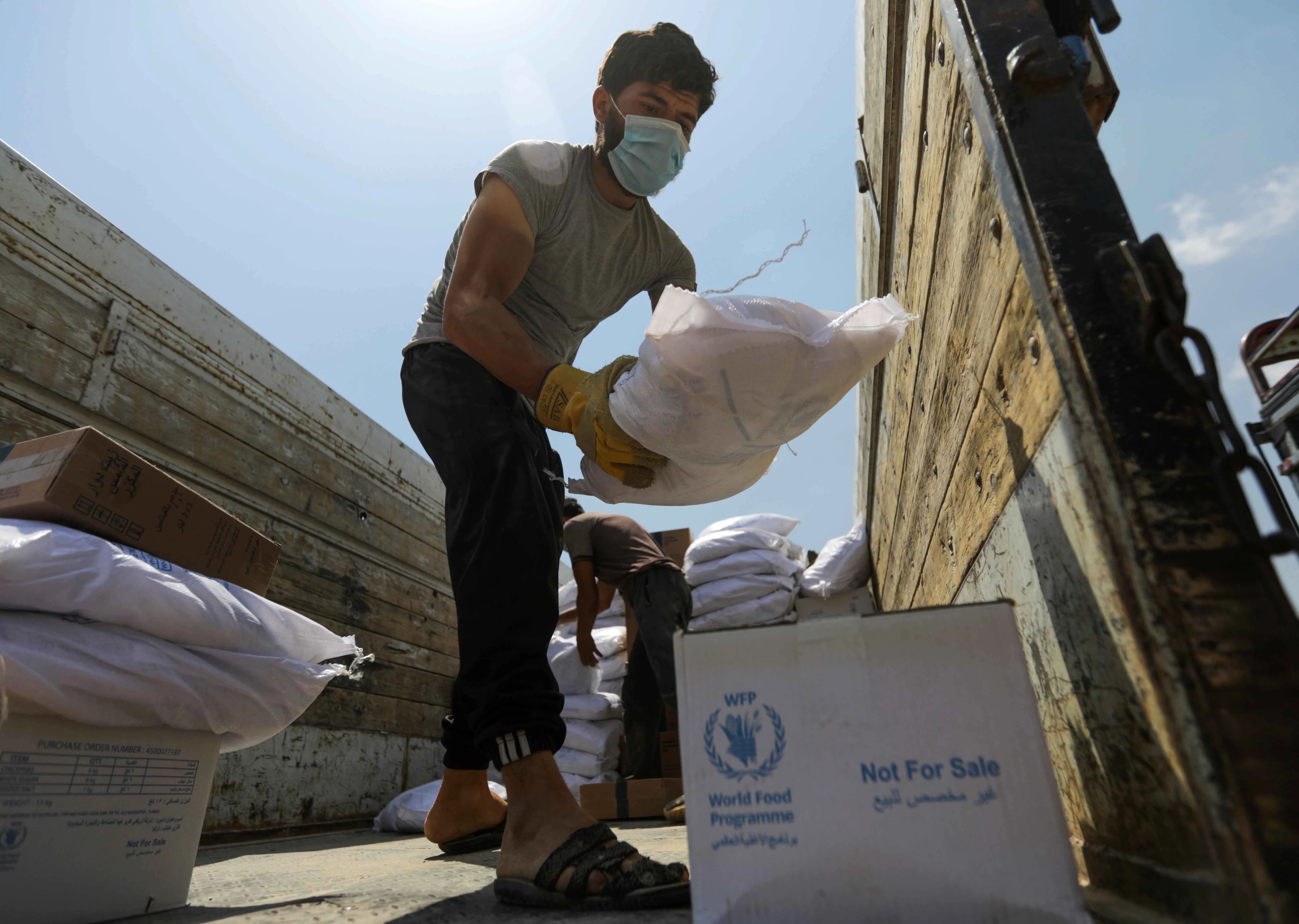
All eyes once again turned to the UN Security Council on January 10, to vote on extending the UN mandate for transferring humanitarian aid to Syria through the Bab al-Hawa border crossing with Turkey.
It comes at a time when several humanitarian organizations are accusing the Russian side of using the humanitarian file to strengthen the Assad regime.
The West had anticipated Russia using its veto to prevent the flow of aid across the borders and to blackmail civilians in the process.
UNICEF recently mentioned that closing the Bab al-Hawa crossing endangers the lives of 1.7 million Syrian children.
Therefore, several countries, led by Britain, supported the establishment of a new aid mechanism called “INSAF” (equivalence).
Diplomatic sources to the Syria TV news agency confirmed that, on December 27, Western countries had taken a preemptive step, through the support of the US, Britain, and Germany to establish the new process of delivering aid, in anticipation of Russia using its veto power against extending the mandate.
Syrian humanitarian organizations operating in the northwest of the country began submitting requests for grants from the new aid fund after donor countries allocated an initial sum of 25 million euros for it.
The Adam Smith international company will supervise the management of funds, the means for disbursing allocations to humanitarian organizations, and the distribution to the needy.
The aid will be in cash based on lists prepared in advance by the United Nations, with the formation of a reliable system for setting new distribution schedules. This will ensure that aid reaches those in need and avoid any loopholes that may exist in the old lists.
Several Syrian associations and organizations have been involved in this new mechanism. Violet was elected to represent the Syrian organizations on the Board of Directors, according to their executive director, Hisham Dirani.
Founder of Violet, Sayed Issa confirmed, in an interview with Syria TV, that the funding has begun, and an amount estimated at 20 million dollars has been placed in it. Part of it will be distributed to some Syrian organizations to implement projects that include distributing cash in the camps, as well as other projects in the field of education.
The West invited 12 Syrian organizations to apply for the first grant, and it is expected that the upcoming grants will include more groups.
Baraa al-Samoudi, Executive Director of the Ihsan Foundation for Relief and Development (one of the groups involved in the project), said: “The process was established to ensure that support and aid to northwestern Syria aren’t cut off.”
“If UN support stops, investment in INSAF can be increased by pumping the necessary funding and securing the flow of funds and aid sufficient for the needs of the displaced in northwestern Syria”, according to al-Samoudi.
Most organizations agree that INSAF is not sufficient to compensate for international aid. If the international mandate is not extended in this regard, it is necessary to work quickly to increase the number of countries participating in this project and raise the value of donations.
However, they believe that the project is still inexperienced, being newly established. It needs governance and time to gain experience in the field of aid to match the United Nations Fund, which has been operating since 2014.








